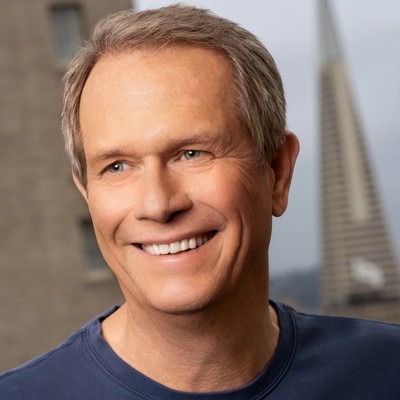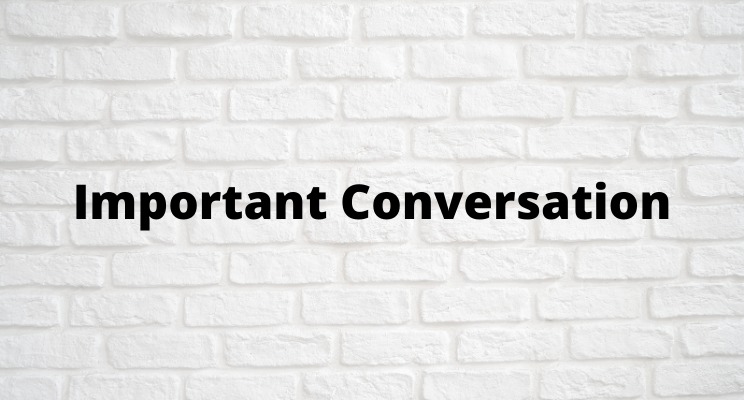Understanding Ethical Leadership

(Rob Chesnut, author of Intentional Integrity: How Smart Companies Can Lead an Ethical Revolution)
The news reveals how challenging and problematic the practice of ethics can be for leaders and organizations. A variety of factors can make what seems simple in theory complex to psychology and behavior.
On the surface it would seem that organizations too often have people ill-suited to model professionalism and moral leadership in positions of authority, creating an environment that can become ripe for misdeeds.
Yet that might not be true, says Rob Chesnut, former Chief Ethics Officer of Airbnb and author of Intentional Integrity: How Smart Companies Can Lead An Ethical Revolution
“I don’t think it’s about identifying ‘bad’ people during the interview process. The data shows that all of us are vulnerable to unethical behavior, depending on the circumstances. The key is to create an environment at the company where acting ethically is encouraged and valued,” he says.
What might prove more effective for prevention against unethical transgression is consistent, healthy communication to drive high-level thinking, commitment, decision-making and behavior. This includes developing clarity of the message and creating understanding about it that inspires intrinsic motivation in alignment with that message.
“It’s a lot easier to rationalize bad behavior when no one talks about doing the ‘right thing’ or explains what the ‘right thing’ means. By talking about it, you set the tone,” Chesnut says.
This has to start early in a relationship and not necessarily in a heavy-handed or disconnected way through the common practice of new hires reading about policy. Instead, a conversation about what is important to leadership, the team and the organization can be conversationally explained with the “why” behind it.
“I like to see companies start at orientation, with a leader coming in to talk to new employees to explain the culture of the company and why acting with integrity really matters,” Chesnut says. “Of course, you’ve got to walk the talk. The onus is on leaders to model the right behaviors. People notice what leaders do.”
There is a healthy viral quality that comes with proactive, assertive communication of the value and then the practice of strong ethics.
“If the leaders talk specifically about actions that have integrity, it’s actually contagious. It inspires the best in people because no one wants to feel that they’re any less ethical than their colleagues,” Chesnut says.
His recommendation is echoed by Johnathan Haidt, a social psychologist and Professor of Ethical Leadership at New York University’s Stern School of Business.
“It’s important to also talk about the positive examples of ethical behavior, not just the bad ones. Focusing on the positive reasons you are in business and reinforcing the good things people do strengthens ethical choices as ‘the norm’ of the organization,” Haidt has communicated.
It stands to reason there are differences between organizations that conduct themselves ethically, as a rule, without exception or those which are infested with misconduct.
This starts, as the cliche goes, at the top and for good reason.
“The CEO is the ethical thermostat for a company. They set the temperature that everyone in the company operates in. If a CEO is exclusively focused on ‘getting big,’ hitting revenue numbers, driving the stock price and uses phrases like ‘get it done no matter what’ or ‘whatever it takes,’ it’s not surprising that employees, fearing for their jobs, start to cut ethical corners to satisfy the boss,” Chesnut says.
It also silences feedback that would be protective, not only to the organization but also to leadership well-being. That leads to increased likelihood of leadership blind spots and poor risk management.
“You have to confront the two fundamental challenges preventing employees from speaking up,” Elizabeth Morrison, a professor of management and organizations at NYU Stern, has said about Encouraging a Speak Up Culture. “The first is the natural feeling of futility — feeling like speaking up isn’t worth the effort or that on one wants to hear it. The second is the natural fear that speaking up will lead to retribution or harsh reactions.”
Colin Powell, former general and U.S. Secretary of State, has spoken about this as well in a very clear manner about the risks assumed when people you are responsible for don’t feel like you care to hear their feedback.
“Leadership is solving problems. The day soldiers stop bringing you their problems is the day you have stopped leading them. They have either lost confidence that you can help or concluded you do not care. Either case is a failure of leadership,” he has said.
However when organizational leadership’s commitment is focused on balance of short-and-long term objectives and not rationalizing and acting outside of ethical boundaries, benefits can be accomplished, including the intangible ones that connect to the tangible.
Leaders and organizations are always sending messages to their people. They just don’t realize it. It’s vital to know what is being communicated.
“On the other hand, if a company takes a longer view and recognizes an obligation not only to investors but also to employees, customers and their communities, it changes the whole ethical tone,” Chesnut says.
It might be surprising to learn that it’s not just the leaders and organizations that end up in the news for scandals and crises that wrestle with moral dilemmas.
“I think every company faces ethical challenges,” Chesnut says.
The reality is there are gray areas, confusion and different variables to consider that create taxing decision-making to successfully navigate or conquer challenges.
“Acting with integrity doesn’t require perfection and often the ‘right’ thing isn’t clear. I’m impressed with companies that have a greater purpose than just profit. They operate with a ‘north star’ that guides what they do. When they make mistakes, they acknowledge it and try to do better,” Chesnut says.
Despite the constant flow of media reporting on low-level or missing ethics among leaders and organizations, Chesnut sees leaders that are standing out for their healthy, professional thinking, noble missions and backing the intent with aligned actions, especially when it comes to social responsibility.
Two that come to mind for him are Brian Chesky of Airbnb and Satya Nadella of Microsoft. He also sees good works from Etsy, REI, Patagonia and Salesforce, saying all “have done admirable things by leading with their values.”
What is critical to realize is that societal expectations and standards are getting higher and more people feel empowered to advocate and express displeasure or anger. If an organization and its top leaders are not ethically motivated, they can expect pressure from within, from their own people as well as externally, whether that be from the media, special interest groups or the public. Some companies are meeting the challenge, some aren’t and others are struggling badly.
“The bar for doing the ‘right’ thing has gone up,” Chesnut says.
Ethics are more than a choice to make. Scrutiny, harsh judgment and contempt are becoming more commonly reported, intense, discussed at length in the media and the public and punished. It’s wise and protective to realize this landscape and value and commit to ethical thinking and actions.
Michael Toebe is a specialist for reputation, professional relationships communication and wiser crisis management, serving individuals and organizations. He helps people successfully analyze and respond to reputation crisis. He has written for Corporate Board Member, Chief Executive, Corporate Compliance Insights, New York Law Journal, Training Industry and Physicians Practice. He authors the weekly Red Diamonds Newsletter and Red Diamonds Essays.
Articles from Michael Toebe
View blog
Rock bottom. No one wants to be there yet people end up in the pit anyway. Sometimes, that’s been, i ...

It’s not comfortable and agreeable to the ego to go out of one’s way to find someone to say ‘no’ to ...

Authority without self control, while alluring to our base instincts, is incredibly dangerous. · Whe ...
You may be interested in these jobs
-

Soundproofing budget for apartment to insulate dining room wall"
Found in: Handyman CS US - 1 hour ago
Direct apply
beBee Handyman Montcalm, WV, United States FreelanceSoundproofing of a single dining room wall in Montcalm, WVWhat type of noise do you want to eliminate? · Conversations · Which parts of the property need to be isolated? · Walls · How many rooms need to be isolated? · 1 · What type of property will the soundproofing be done in? · ...
-

Civil Engineer Land Development
Found in: Lensa US 4 C2 - 2 hours ago
Kimley-Horn Charlotte, United States**Overview** · Kimley-Horn is looking for an experienced Civil Engineer with 3 or more years experience to join our Land Development team in Charlotte, NC · **Responsibilities** · Candidates should have experience with site civil design and permitting and applicable software appl ...
-

RN - Registered Nurse - Step Down/Intermediate Care 4se
Found in: Lensa US P 2 C2 - 5 days ago
Bon Secours Mercy Health Youngstown, United StatesAt Bon Secours Mercy Health, we are dedicated to continually improving health care quality, safety and cost effectiveness. Our hospitals, care sites and clinicians are recognized for clinical and operational excellence. · **Join our team today** · ***$15,000 Sign on Bonus for RN ...
Comments